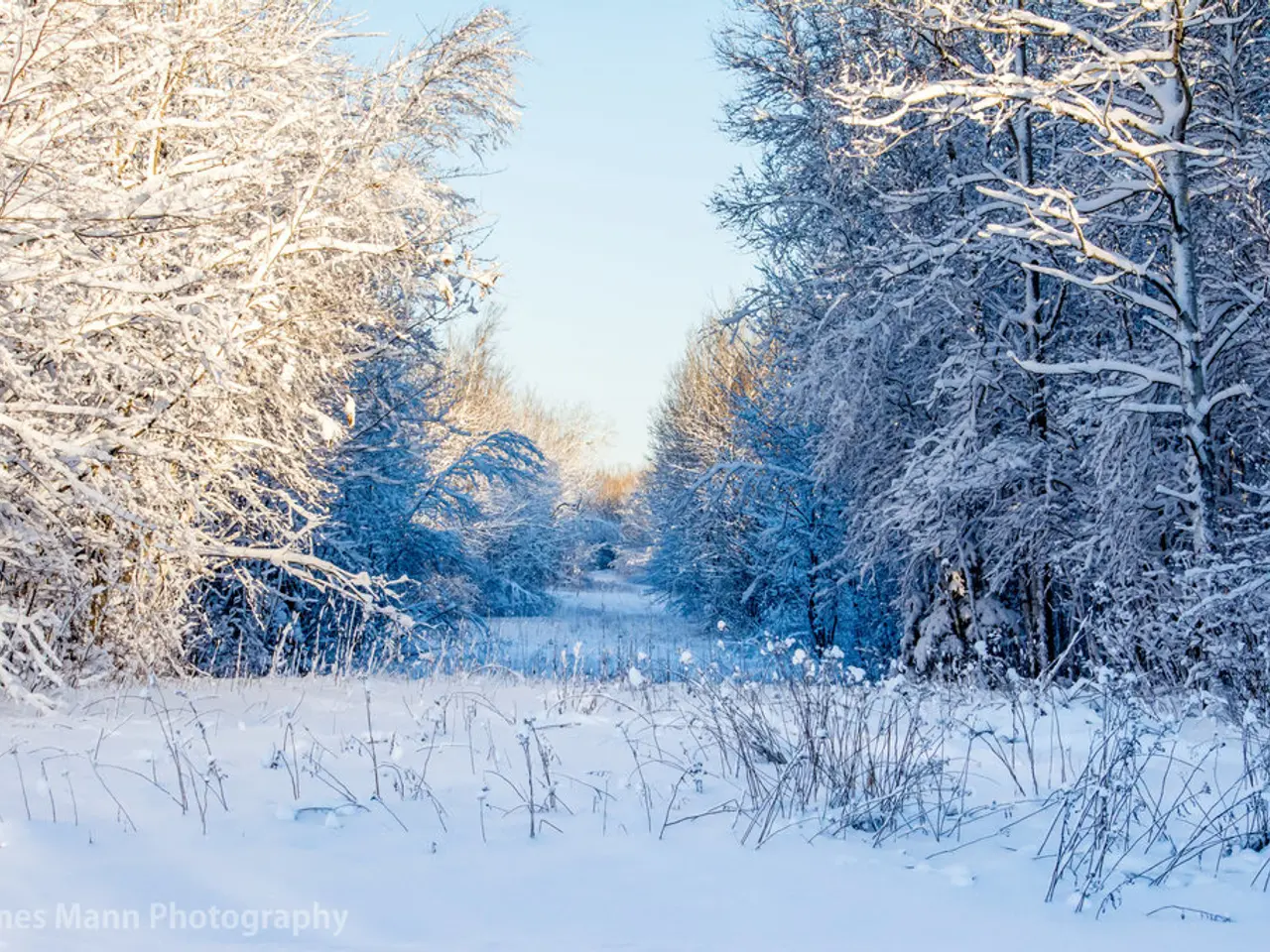Insights Gained from the Cold Season
Winter, with its cold and stillness, is often seen as a season of hibernation and dormancy. However, it offers valuable lessons that can be applied to personal growth and self-care.
Noelle Vignola, a renowned figure, beautifully encapsulates the essence of winter when she says, "Winter is the time of sacred balance and rejuvenation of life in preparation for the coming spring. It represents abundance, teaching, and gratitude."
The lessons from winter focus on self-discipline, introspection, resilience, rest, and preparation for renewal.
Self-discipline is fostered as winter encourages us to practice consistent small actions daily rather than relying on sporadic, large efforts. This steadiness builds lasting personal growth and stability.
Introspection and turning inward become easier during the quiet and stillness of winter. Practices like meditation, journaling, and mindful breathing can deepen this inner connection and cultivate calmness amid external challenges.
Resilience is tested during winter's hardships, helping us build mental and emotional strength. Preparing for these challenges through emotional regulation, gratitude, and maintaining commitments, especially to oneself, helps build resilience that endures beyond winter's difficulties.
Rest with intent and resetting is a natural part of winter. This rest is not a stopping but a strategic pause to recharge, reflect, and build the readiness to grow and act when conditions improve.
Preparation and growth are essential during winter. Using this season as a time to study, plan, learn, and maintain discipline equips one to emerge from hardship stronger and ready for renewal and transformation when the "sun comes back out."
It's also valuable to step away from technology during winter and choose activities that stimulate the brain in a positive way. Preparation is an important stage, and we can nurture ourselves with healthy habits and choices to prepare for the work ahead or what might come.
Embracing the winter's time for rest and sleep can be an important place to start for self-care. During this time, it's beneficial to practice slowing down, recharging, and resetting, and to embrace the importance of being over doing.
Winter can teach us about finding beauty and meaning in less obvious places. Its subtle beauty requires looking more deeply to find, but it's there, waiting to be discovered.
Elizabeth Camden aptly summarizes winter's essence when she says, "It seems like everything sleeps in winter, but it's really a time of renewal and reflection."
In conclusion, winter teaches the importance of steady effort, deep self-reflection, embracing challenges with resilience, mindful rest, and intentional preparation—all essential components for personal growth and effective self-care.
Therapists might suggest incorporating outdoor-living activities during winter to boost mental health, as spending time in nature can increase feelings of relaxation and well-being. For instance, taking a walk in a park or going skiing can be therapeutic, fostering a sense of connection with the earth.
As we engage in home-and-garden projects during winter, like pruning trees or planting bulbs, we apply the lessons of winter to our lives, nurturing growth both within our living space and within ourselves, promoting a balanced and rejuvenating lifestyle.





